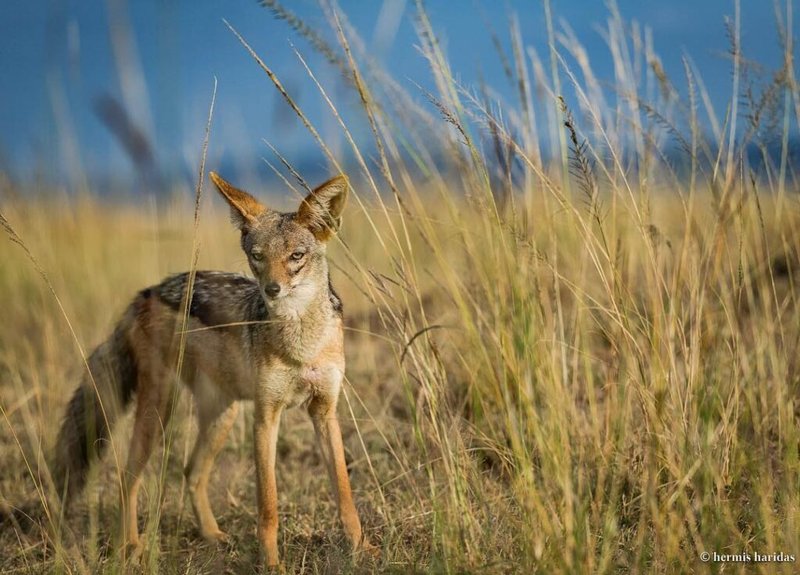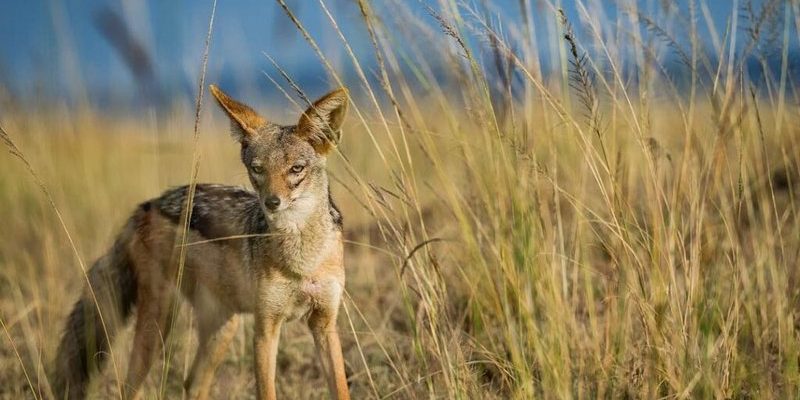
Now, you might be wondering what specifically makes black-backed jackals so adept at surviving. They have a few nifty tricks up their sleeves. From their unique behaviors to their social structures, these jackals are a perfect example of nature’s ingenuity. So, grab a cup of coffee, and let’s dive into the fascinating world of black-backed jackals and explore how they endure in harsh conditions.
1. Life in the Harsh Landscape
Black-backed jackals primarily inhabit regions like southern Africa, including the Kalahari and Namib deserts. These areas are characterized by extreme temperatures, scarce food resources, and limited water availability. Imagine trying to survive in a place where the sun beats down relentlessly, and dinner is hard to come by. Yet, the black-backed jackal has adapted remarkably well to these challenges.
Their bodies are built for efficiency. With a lean physique and long legs, they can cover vast distances to find food and water. Think of them as the marathon runners of the animal kingdom, able to conserve energy while traversing great lengths for their survival. This adaptability to their physical environment is one of the key reasons they thrive where many other species struggle.
2. Dietary Flexibility
One of the black-backed jackal’s most impressive survival strategies is its omnivorous diet. They don’t just stick to one type of food; instead, they have a diverse menu that changes based on availability. This means they can munch on anything from wild fruits and insects to small animals like rodents and birds.
Imagine going grocery shopping but being able to grab whatever looks good and is in season. That’s the approach these jackals take. During dry seasons, for example, they might rely heavily on fruit to stave off hunger, while during wetter months, they focus more on hunting small mammals. This dietary flexibility is crucial in harsh environments where food can be scarce.
3. Social Structure and Hunting Tactics
Black-backed jackals are social animals, often found in small family groups or pairs. This social structure isn’t just for warmth and companionship; it plays a significant role in their survival. Working together, they increase their chances of successfully hunting larger prey or scavenging meals left by bigger predators like lions or hyenas.
Their hunting techniques are pretty fascinating, too. Jackals often employ a “teamwork makes the dream work” mentality. They distract prey, running in circles to create confusion while others close in for the catch. It’s a bit like a well-orchestrated dance, all for the sake of a meal. This level of cooperation helps them thrive in a challenging landscape.
4. Clever Adaptations
Adaptation is the name of the game when it comes to survival. Black-backed jackals have developed several clever traits to help them live in harsh environments. For one, they are primarily nocturnal, meaning they do most of their hunting and foraging at night when temperatures are cooler, and they can avoid the harsh sun.
Also, their keen sense of smell is crucial. They rely on scent to locate food sources and to communicate with other jackals. This adaptation is like having a sixth sense, enabling them to navigate and find sustenance even when conditions are tough. Plus, they often cache food, hiding leftovers to eat later. It’s kind of like putting leftovers in the fridge, ensuring they won’t go hungry on a dry day.
5. Resilience and Reproduction
Even in the toughest conditions, black-backed jackals manage to reproduce and raise their young. Their breeding season usually aligns with the rainy season, ensuring that there’s enough food available for the pups. When food is plentiful, the survival rate of the young increases significantly.
You could say they’re like savvy planners, setting the stage for their offspring’s success. Additionally, while one parent hunts, the other stays behind to care for the pups. This division of labor allows them to maximize their chances of survival as a family unit—making sure that even in challenging times, there’s a support system in place.
6. The Role of Habitat Conservation
As fascinating as black-backed jackals are, their habitats face threats from human activities. Habitat destruction, poaching, and climate change are all impacting their environment. Without conservation efforts, these resilient animals may find it harder to survive in the future.
It’s crucial to support initiatives that protect their natural landscapes. Healthy ecosystems are vital, not just for jackals but for countless other species. By protecting their habitat, we’re essentially giving them a fighting chance to continue thriving in harsh conditions.
7. What Can We Learn from Black-Backed Jackals?
So, why should we care about how black-backed jackals survive? Honestly, they teach us valuable lessons about resilience and adaptability. In our own lives, we face challenges that may seem insurmountable, but like the jackals, we can learn to adapt, be flexible, and work together toward common goals.
Just think about it: nature has a way of showing us that survival often comes down to creativity and cooperation. By understanding these principles through the lives of black-backed jackals, we can become more aware of our own approaches to challenges.
The black-backed jackal is a remarkable example of life adapting to tough conditions. From their flexible diet and clever hunting tactics to their social behavior and nocturnal lifestyle, these jackals have developed a toolkit of survival strategies that allow them to thrive where many would falter.
As we reflect on their incredible adaptability, let’s remember that there’s much we can learn from nature. Protecting these animals and their habitats ensures that future generations will get to witness their cleverness and resilience firsthand. Ultimately, the survival of black-backed jackals symbolizes the strength found in adaptation, cooperation, and resilience—something we all can strive for in our everyday lives.

